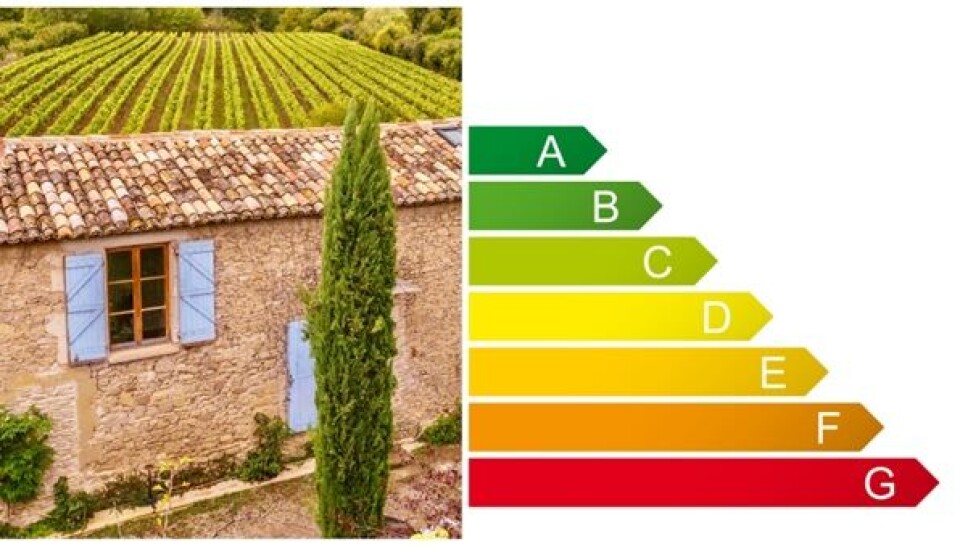-
Points to check before buying a property in France
Cracks, termites, electrical checks…what to look out for
-
France to reform DPE 2026: better ratings for electric-heated properties
New co-efficient will be used to calculate a property’s category
-
French holiday rental property energy rating requirements to change
Other changes including some related to tax also come into force
Timetable for new energy-linked restrictions for homes in France
Restrictions on renting houses with low energy efficiency are coming into force from 2025

Properties in France with an energy rating of F or lower will no longer allowed to be on the rental market from 2025, the government has confirmed.
DPE ratings have long been used to inform people about a property’s theoretical energy use, but since July 1 2021, they have also been seen as actionable guides to improving the energy efficiency of a home.
The government has now confirmed that from 2025, properties that are rated below F will no longer be allowed onto the rental market. Any such properties that are already on the market will be considered non-decent.
The government hopes that the move will encourage homeowners to improve the energy efficiency of their properties, in line with a French climate law that came into force in 2021.
What is the DPE?
All homes and flats put up for rent or sale in France must include an evaluation of their energy consumption. This is known as the Diagnostic de performance énergétique, energy performance diagnostic, or DPE.
Since 2021, the real power consumption of a property is no longer a consideration in the DPE evaluation. Instead, it is based on factors including a property’s construction materials, orientation, and heating equipment.
The resulting energy efficiency rating - which may therefore end up lower than thought - frequently leaves owners surprised and disappointed at their property’s low category.
Older character houses without modern insulation fare poorly, even if they do not actually consume much electricity.
The purpose of the DPE is to make potential tenants and buyers aware of the theoretical cost of heating and cooling their home, while encouraging owners to make their properties more energy efficient, in a drive to reduce carbon emissions.
The colour coded DPE rating goes from A to G. A is the most efficient at 70 kWh per m², and G is the least efficient, at more than 421 kWh per m².
Properties in category A are better insulated, require less energy for heating and cooling, produce less carbon dioxide per square metre and, are also considered to be more comfortable in summer and winter.
Read more Homeowners in France advised how best to prepare for energy ratings
Timetable for new restrictions
Properties that consume more than 450 kWh per m² fall into category G+. Since January 1 2023, it is not permitted to let out a property rated G+.
An increasing number of rental properties will be affected by these restrictions in years to come.
According the new timetable:
- From January 1, 2025 rental properties must have a minimum category of F or up to 420 kWh per m².
- From January 1, 2028 rental properties must have a minimum category of E or up to 330 kWh per m².
- From January 1, 2034 rental properties must have a minimum category of D or up to 250 kWh per m².
Properties with these restricted DPE ratings are considered non-decent, which means that anybody already renting one can require the property owner to do the necessary work to improve it.
While people renting a non-decent property must still pay rent, the rent for properties classed F and G cannot be increased.
The DPE letter category must be included in all estate agency adverts, both for rent and sale. Adverts for sale properties classed F and G or G+ must include the line logement à consommation énergétique excessive, or ‘housing with excessive energy consumption’.
Can DPE restricted properties be bought and sold?
While DPE audits are compulsory prior to the sale of all individual houses and multi-unit residential buildings, the restrictions only apply to properties available to rent.
Properties can still be bought and sold even if they are category G+, as is the case for countless old stone farmhouses.
The DPE audit will indicate to buyers what work could be done to get an A rating, but buyers can choose to ignore the DPE.
How much does a DPE cost?
The price for obtaining an official DPE rating is not set by any legislation. It can fall anywhere between €100 and €250, and can only be performed by independent professionals.
The price can sometimes be much higher if the DPE is evaluated along with other aspects, such as asbestos, lead and electrical diagnostics.
DPE evaluations are valid for 10 years.
The misleading display or manipulation of a DPE evaluation is punishable by a fine of up to €3,000 for individuals or for €15,000 for companies.
Related articles:
Is France’s DPE property energy rating based on actual bills?
Old rural homes should be exempt from EU energy plan says French group
‘No sense’ to exempt old stone homes from EU energy rules, says MEP
























